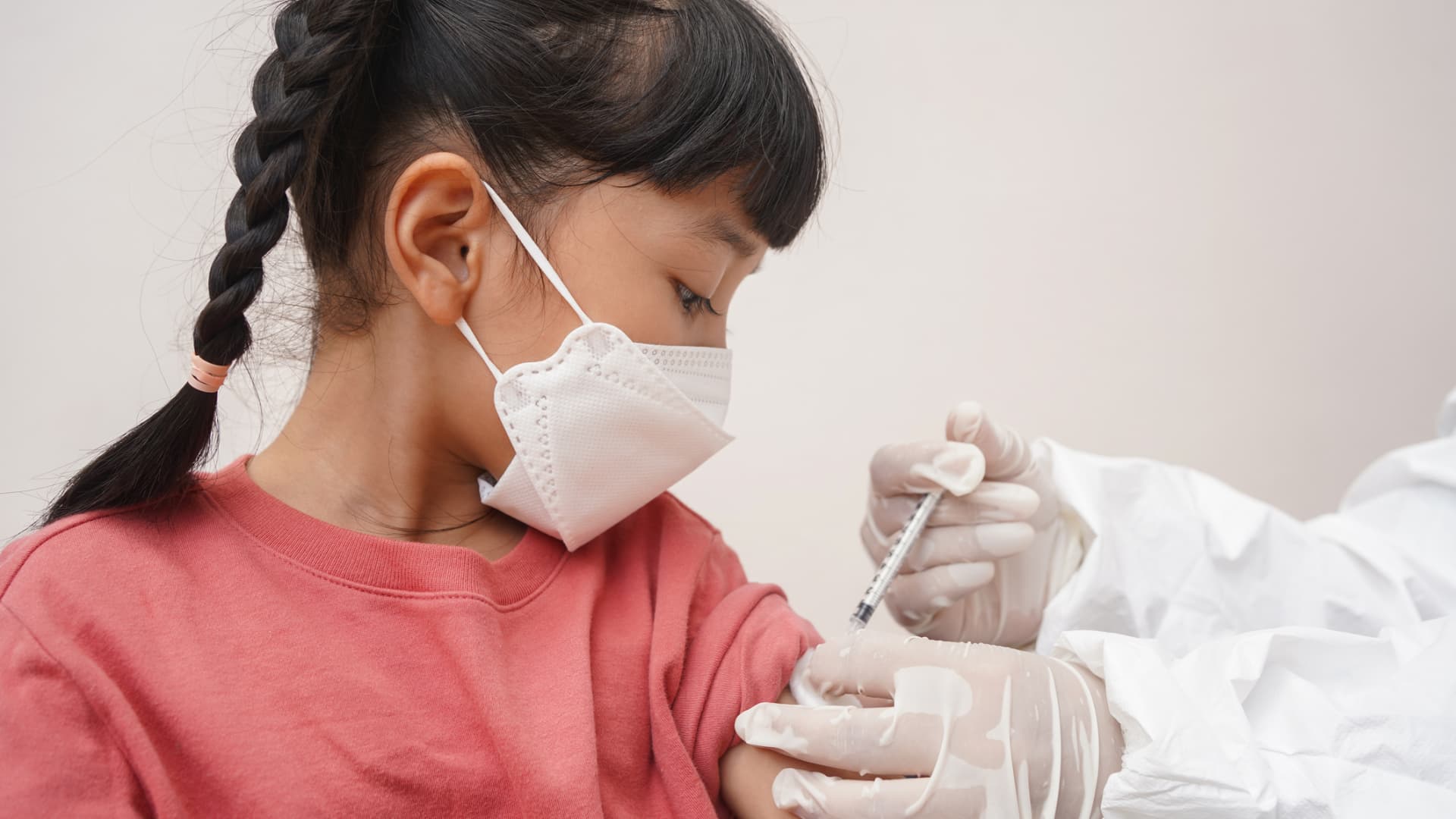Illustrated by Nami | Instant | Getty Images
An independent advisory panel to the U.S. Food and Drug Administration on Thursday unanimously recommended approval of the antibody nirsevimab to protect infants from respiratory syncytial virus, the leading cause of hospitalization in newborns.
If the FDA approves nirsevimab, the antibody would be the first medical intervention in the United States that could protect all infants from RSV infection. The FDA is under no obligation to follow the advice of its advisory panel, which is expected to make a final decision on nirsevimab in the third quarter of this year.
nirsevimab is a monoclonal antibody produced by AstraZeneca. The drug will be administered by Sanofi.
The advisory panel voted 21 to 0 for approval.
respiratory syncytial virus to kill Nearly 100 babies are born in the United States every year.
Babies hospitalized with RSV often need oxygen support, IV fluids, and sometimes a ventilator to support breathing.
The virus is a major public health threat. A surge in RSV infections last year overwhelmed children’s hospitals, leading to calls for the Biden administration to declare a public health emergency in response.
RSV is spreading at the same time as flu and Covid-19, adding to the strain on hospitals.
There is another monoclonal antibody used against RSV called palivizumab. But the antibodies are only available for premature babies and those at high risk of severe lung and congenital heart disease. Palivizumab must also be given monthly.
In contrast, nirsevimab will also be given to healthy infants, who account for the majority of hospitalizations. It is also given in a single dose, which will make administration easier.
Nirsevimab is not considered a vaccine because it is a monoclonal antibody.
It is unclear whether the federal childhood vaccine program will provide nirsevimab to uninsured and underinsured children at no cost, because the antibody is regulated as a drug.
Nirsevimab is approved in Canada, Europe and the United Kingdom.
effect
Nirsevimab was up to 75 percent effective in preventing lower respiratory infections requiring medical attention and up to 78 percent effective in preventing hospitalization, according to an FDA review.
The FDA’s more conservative estimate puts the antibody’s effectiveness at about 48 percent against lower respiratory tract infections requiring medical attention. This estimate assumes that patients with missing health outcome data have a lower respiratory infection requiring medical attention.
Nirsevimab is given as a single injection, and the dose is based on the baby’s weight. Babies weighing less than 5kg will receive a 50mg injection during their first RSV season, while those weighing 5kg or more will receive a 100mg injection.
Children under the age of two who remain at risk of severe RSV during the second season will receive a single 200 mg injection of nirsevimab.
Safety
The FDA found no safety concerns when it reviewed nirsevimab.
Other monoclonal antibodies have been associated with severe allergic reactions, rashes, and other hypersensitivity reactions.
The FDA did not see any cases of severe allergic reactions in the nirsevimab trial, and there were rare cases of rashes and hypersensitivity reactions among infants receiving the antibody. But FDA official Dr. Melissa Baylor said those cases of side effects could happen if nirsevimab is approved.
Twelve infants treated with nirsevimab died in the trial. None of the deaths were antibody-related, according to an FDA review.
4 died from heart disease, 2 from gastroenteritis, 2 from unknown cause but possibly SIDS, 1 from tumor, 1 from COVID-19, 1 from skull fracture, 1 from pneumonia.
“Most deaths were due to underlying diseases,” Baylor said. “Deaths do not appear to be related to nirsevimab.”
Due to the historical failure of RSV vaccine development, there is great concern about safety. Scientists first attempted to develop a vaccine using an inactivated virus in the 1960s, but the injection actually made some children’s disease from RSV infection worse when they were first naturally infected, killing two babies.
Manish Shroff, AstraZeneca’s head of patient safety, said the company will closely monitor the safety of nirsevimab through a large global surveillance system: “Safety is the most important thing,” he said.
Questions about how nirsevimab might interact with vaccines in development that vaccinate the mother to provide protective antibodies to the fetus have also not been answered, Baylor said.
It is unclear whether giving nirsevimab to infants whose mothers have received this RSV vaccine would provide additional protection or create potential safety concerns,” Baylor said.


